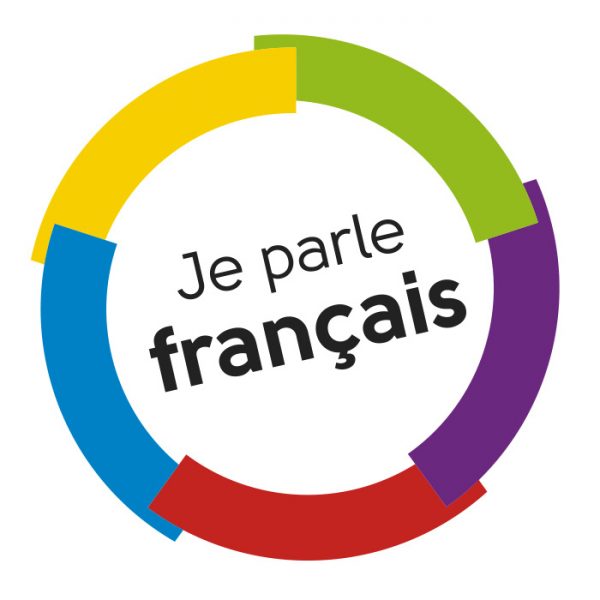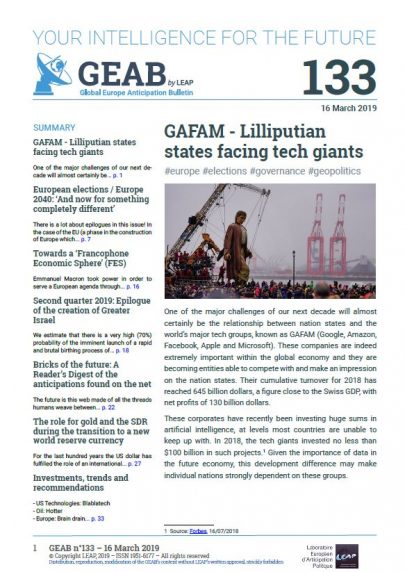GEAB 133

Emmanuel Macron took power in order to serve a European agenda through the reintegration of France (marginalised since 2003[1] but without which there is no Europe) into the heart of the Concert of European Nations. The idea was that by showing goodwill through the making of reforms in conformity with the EU, France and its European ideas would be accepted again. Two years later, this has been a resounding failure: not only did the EU continue to snub all the French proposals (especially on euro reform), but domestic reforms have brought the French out to the streets.[2]
Currently, Emmanuel Macron is playing one last card, trying to repeat at the European level his national political coup of 2017 and launching a trans-European political dynamic.[3] Whilst supporting this approach,[4] our team cannot anticipate anything but yet another failure. Not only does it come too late, but the starting point for his approach, not only national but French, is in itself sufficient reason for rejection by the Europeans… and by the French, for that matter: his discourse is too European for the French and his approach too French for the Europeans. It is good that it exists, but it will not be sufficient to kick the EU out of its rut, so Europe will need to go for “something completely different” following the election, as explained in a previous article.
Following this latest snub to his European ideas, Macron is faced with two choices: either he will land himself in an extremely complicated political situation leading to his erasure in favour of the more French-French ministers of government such as Bruno Le Maire… see his complete resignation, or he will radically change his tune, forgetting the European discourse and adopting the accent of Gaullism instead.
Login

One of the major challenges of our next decade will almost certainly be the relationship between nation states and the world's major tech groups, known as GAFAM (Google, Amazon, Facebook, [...]
(A handbook for the actors of the European campaign) There is a lot about epilogues in this issue! In the case of the EU (a phase in the construction of [...]
We estimate that there is a very high (70%) probability of the imminent launch of a rapid and brutal birthing process of Greater Israel. Figure 1: Comparison between the presentation [...]
The future is this web made of all the threads humans weave between themselves and tomorrow. In the work GEAB teams have undertaken to understand the ‘web’ of the future, [...]
For the last hundred years the US dollar has fulfilled the role of an international reserve currency, smoothing international trade and providing liquidity to the financial markets in times of [...]
A reminder that our recommendations are not for speculative purposes, therefore short-term, that they don’t aim to win more, but rather to lose less (even nothing) because in the case [...]

Comments